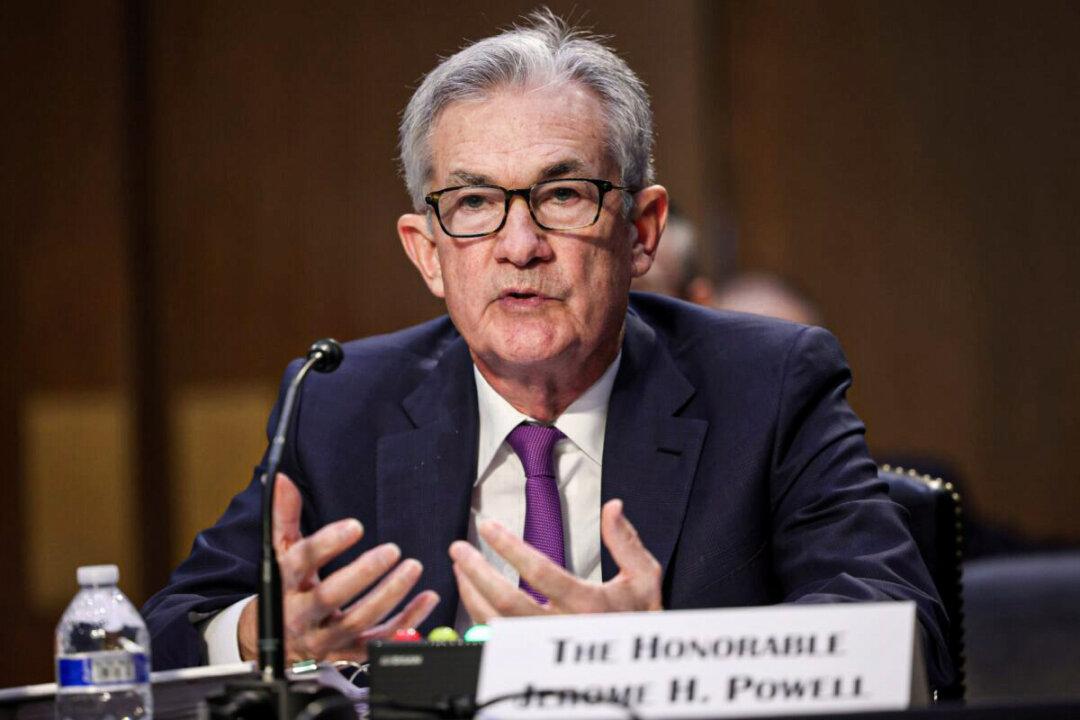Federal Reserve Chair Jerome Powell was questioned on the persistence of inflationary pressures during a Senate hearing on Nov. 30, with the central bank chief acknowledging that it’s “time to retire” the word “transitory” from the inflation narrative, noting that factors pushing inflation higher would stick around “well into next year.”
Powell made the remarks during testimony before the Senate Committee on Banking, Housing, and Urban Affairs, while responding to a question from Sen. Pat Toomey (R-Penn.), who challenged the Fed’s “transitory” framing of the current bout of inflation, which hit a three-decade high in October and accelerated its monthly pace from the prior month.





